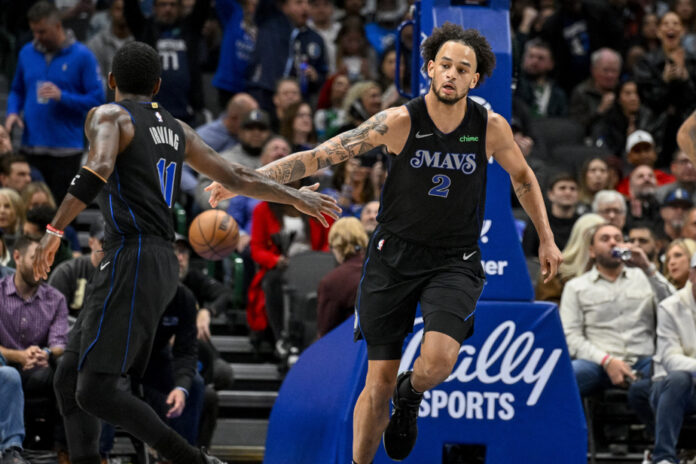(Las Vegas) For years, professional sports, including basketball and baseball, have banned alcoholic beverage advertisements in stadiums and arenas to prevent them from being televised during games. It was support for the fight against drunk driving.
But in 2009, during the worst recession since the Great Depression, these leagues saw their revenues plummet as big advertisers – automakers, banks, etc. – have slashed their advertising budgets. They then signed lucrative contracts with distillers advertising rum, tequila, vodka and other strong alcohols, and their advertising is often clearly visible.
This shows how everything can change overnight, especially when money is at stake. Another example was seen last week when Miriam Adelson, controlling shareholder of Sands Corporation, a casino operator, entered into a agreement to buy a majority stake in the NBA’s Dallas Mavericks.
“The Adelson and Dumont families are honored to be entrusted with this great dealership,” they said in a statement.
Since the famous Black Sox scandal in 1919, the major professional leagues have stayed away from the world of gambling. Sports betting was prohibited for players, umpires and owners to protect match results from any suspicion of irregularity.
In some leagues, such as the NFL, any participation in casinos is prohibited. Thus, Dan Rooney, the main shareholder of the Pittsburgh Steelers, had to buy out his brothers’ shares in the team: they owned race tracks in New York and Florida. The NBA has no such rule. Owners have been linked to casinos, including Tilman Fertitta, current owner of the Houston Rockets.
The caution of that era is old hat today, as sports betting – once the preserve of casinos and bookmakers – has been legalized in dozens of states. Betting on your sport remains prohibited for players, referees and owners, but the gaming industry has been welcomed with open arms by professional sport.
There is a betting window in some NFL stadiums, such as the Washington Commanders. Sports betting sites now advertise themselves in stadiums as well as on TV during games, including the Super Bowl, with various promotions to attract new customers.
The leagues have also made an about-face on the subject of Las Vegas, the capital of sports betting and, as such, a banned city for years. Today, the NHL, NFL and WNBA have teams there. Last month, major league baseball owners unanimously approved the move of the A’s from Oakland to Las Vegas. The NBA hosted All-Star games, a summer league and a new intra-season tournament there. An expansion is planned there. All major professional sports would then be present in the once-shunned city of sin.
“Leagues adjust to changing laws and morals, as well as the rise in popularity of different companies and categories,” explains Marc Ganis, consultant to numerous teams and leagues. “This includes reviewing rules of ownership, sponsorships and advertising. »
The NFL’s embrace of Las Vegas is perhaps most surprising, given the league’s conservative reputation. The Raiders were able to move there in 2017. The league organized the Pro Bowl and the college draft there. And in February, hosting the Super Bowl in Las Vegas will erase any distance that may remain between the league and the city.
The repositioning of the leagues has been both practical and strategic. That all changed in 2018 when the Supreme Court ruled that a law banning sports betting in most of the country was unconstitutional. Dozens of states have legalized the activity, dwarfing the amount spent in Las Vegas. The NFL now allows owners to invest in casinos without sports betting, but limits their stake in casinos where betting on sports is carried out to 5%.
Las Vegas has become more frequentable without changing. “The thing is, gambling is almost everywhere today,” says Michael Green, a historian at the University of Nevada, Las Vegas. “They’re as legitimate as any big company. »
The city of Las Vegas is relatively small, with a regional population of around 2.5 million, but it supports the Raiders and Golden Knights because it is a permanent destination, attracting around 40 million tourists per year.
These visits to Las Vegas expose “a whole new segment of the population to sports betting,” says Jay Kornegay, vice president of racing and sports betting at Westgate Resorts.
Barely 20 years ago, historian Michael Green recalls, the NFL prevented Las Vegas from advertising during the Super Bowl.
As a measure of how much things have changed, Mr. Green concludes by asking a rhetorical question: “Remind me where the next Super Bowl is, again? »





